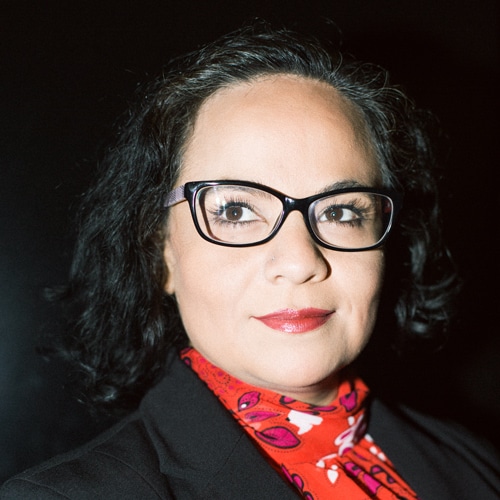When Anna-Lisa Corrales stepped into her Mahwah, New Jersey, office at Jaguar Land Rover in the summer of 2008 for her first day of work as general counsel for the company’s North American operations, there were no footfalls or knocks on her door from other lawyers to break the immense silence she confronted. The current growth and success of the company could not have been predicted.
That year, Ford Motor Company, which was facing the impending global financial crisis, had sold the luxury car brands to Indian business house TATA Group. All the auto giant’s lawyers stayed put, leaving the legal department at Jaguar a shell. Corrales’s charge was to come in and make something out of nothing. The department didn’t even have administrative personnel.
Not only that, but Corrales had just had a child, so her time was spread thinner than it might have been otherwise. Still, the job beckoned. And, in some ways, it seemed meant to be.
Prior to making the move to Jaguar Land Rover, Corrales was at a law firm, content with her work but feeling like she was ready for a new challenge. So she began considering a change. She had worked with a couple of auto companies at the firm and had a love for cars and car design. Then, the first time she went to a job board to begin job searching, she saw the ad for the position at Jaguar.
Because she had relatively little auto experience, though, she didn’t think she really had a chance. She knew about the sale of Jaguar Land Rover, but she couldn’t tell from the ad exactly what the situation was in the legal department. Despite all that, she applied. It was kind of a lark. Soon after that, she received a call to set up an interview.
It was a videoconference where the video failed, which she saw as a sign that the process might be star-crossed. They ended up doing the interview with just audio, and it became clear that were she to take the job, she would be the sole lawyer on staff in North America. It felt overwhelming, but the interviewers assured her that she would have the support of upper management. They also let her know that they understood her situation with her child and that she would be able to telecommute at times. That was enough, so she seized the opportunity.
“It was not an easy decision, going into that, but whenever I make a life decision, I trust my gut,” she says. “I knew I wanted to take my career in this direction, and this was a role I could grow in. The business was trying to stand on its own feet outside of Ford. I needed that kind of challenge to push myself and take me to the next level of my ability.”
She had little time to bring a department to life, without any promise of additional attorneys in the interim. If she had questions, there was no legal staff inside to turn to. She had to turn to outside counsel to understand the status of cases. To get her bearings, she had to get creative.
“I joined any internal meeting I could,” she says. “I kept my door open because I had to learn this business. I knew I wouldn’t be able to make the case for more lawyers until I knew what the needs were. I triaged the work I could do, figured out the things I couldn’t do. There was no electronic system for documenting our matters, so it was tough to figure out what the numbers were showing.”
Nearly six months passed before a paralegal came on board to offer assistance and administrative help. At about the nine-month mark, she hired her first attorney. In 2010, two more came on board. Every time Corrales added a lawyer, she had to make a business case for the hire. As she gradually came to understand the business better, she designed clear roles for each staff member, making her appeals more effective. Since 2009, she’s grown to a team of five lawyers.
She says that even given how badly she has needed help at times, she has had a long-term view to building a lasting effective team. “Hiring people is one thing, but getting the right people in the right roles and keeping them happy is a really important part of getting it right,” she says. “On my team, I want everyone to complement everyone else and to pull their weight. It’s also very important to hire people who you feel are in some way smarter than you. You also try to bring in a diversity of views.”
Ethnic diversity is also very important, she says. Having received a scholarship to a college prep school on the basis of being Hispanic—something she says helped get her into a good college and launched her early career—she tries to support other minorities in getting a leg up in the industry.
The path to Jaguar Land Rover was in many ways strange and unexpected, but Corrales says she has reached a place in her career that just fits. “I think the most important factor in life decisions is recognizing what the next thing is that you need to grow and being open to possibilities,” she says. “I’ve found each step in my career an opportunity, and I’ve always done what was best for me to grow. I had no idea I would end up in automotive, let alone a growing British luxury company. I wouldn’t have written it this way, but I’m so glad it happened this way.”

